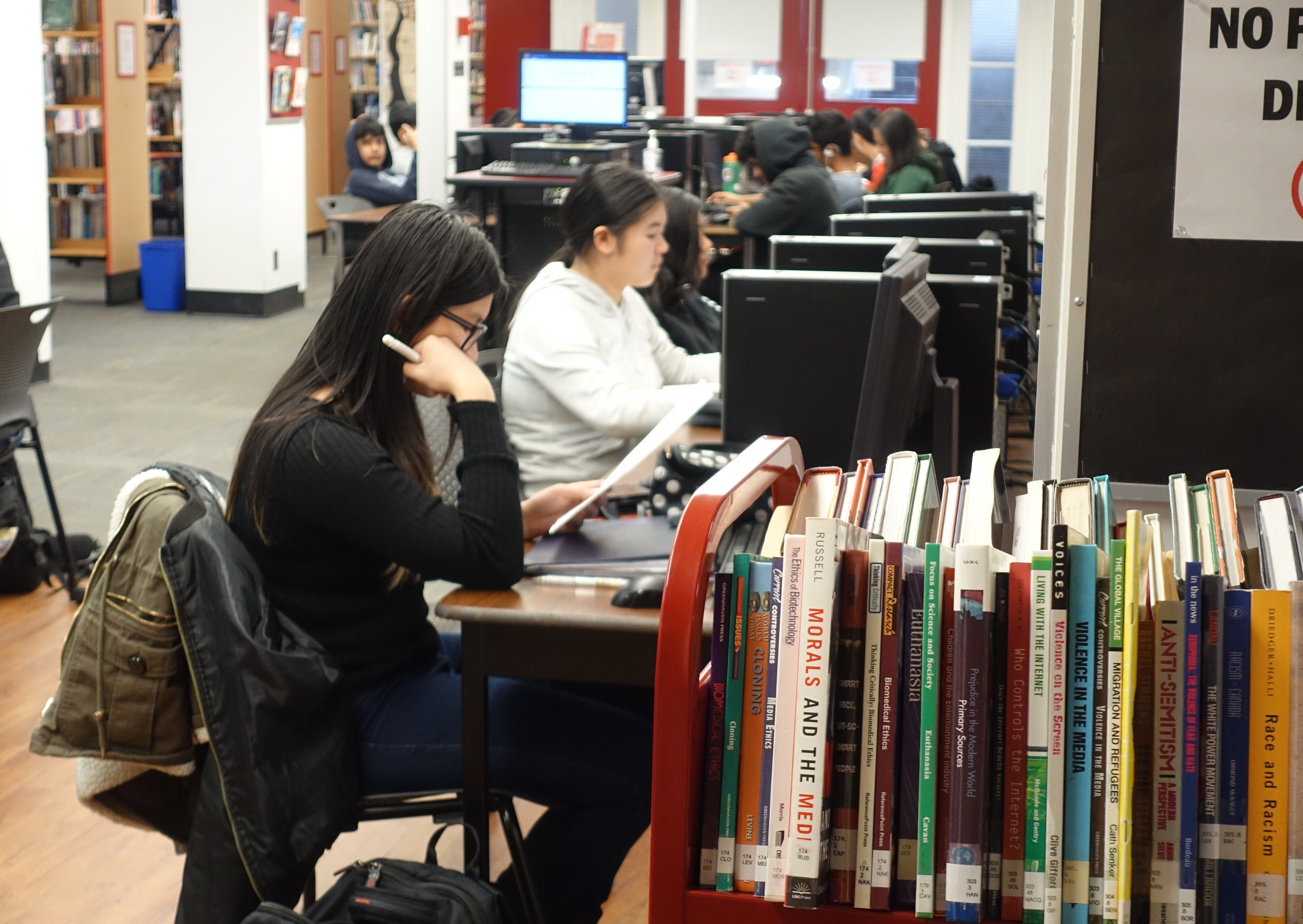New curriculum begins next year for Grade 10s, meaning new options for this year's Grade 9s in course selection

Third in a series on BC's new curriculum and what it means for VSB students.
Grade 9 student Ian Paterson is a fan of science fiction, so he's hoping to be able to take a new English course on speculative fiction next year. "I like that we could explore what writers believe the world will be like in the future," says the Eric Hamber Secondary student. "I think the new choices look pretty interesting."
It's course planning time at VSB high schools, which means parents and students are looking at course choices and sending in forms with their preferences for electives and core courses. But for students currently in Grade 9, this year offers some new choices.
The class of 2021 will be the first cohort to enter Grade 10 with the new BC curriculum. As with anything new, there is a learning process about what that means, and how the choices for courses next year are different from the ones made by students in the years before them.
While every incoming Grade 10 student has always had to make choices about courses, there are two new choices that this group is the first to confront.
First, what used to be English 10 is now Language Arts 10, and there are options about what kind of Language Arts 10 courses they can choose.
"The Language Arts 10 graduation requirement is 4 credits, and students can take two different courses for two credits each," says Aaron Davis, director of instruction with VSB. "Our secondary schools will offer options from the five curriculum areas - literary studies, composition, spoken language, new media and creative writing - but not every school can offer all five options. Most of our schools will offer students two or three choices for next year."
"My school is combining speculative fiction with creative writing, so that's the course I most want," says Paterson. Hamber Secondary is offering three options for Language Arts 10, including segments on new media and composition. "I like the number of choices offered with the new curriculum," he adds.
The new curriculum also offers an option of English First Peoples 10. Academically equivalent to Language Arts 10 and equally accepted for entrance to post-secondary education, the English First Peoples curriculum is designed for all students - Indigenous and non-Indigenous - who are interested in delving deeply into First Peoples' oral and written literature and visual texts in a range of media.
"Next year only a few of our secondary schools will be able to offer the English First Peoples courses in Grade 10, but we hope to expand that in the coming years," says Davis.
For school counselors, whose role is to help students and parents understand their course choices, there have been many questions about the new choices.
"There's a lot of questions about what will happen beyond grade 10," says Templeton head counselor Jason Mark. "English is one of the areas that is having the biggest change, and we're being asked about how this year's choices will impact their courses in grades 11 and 12. We've been trying to help students and parents make informed choices."
The other new offering for the class of 2021 is the move from the previous Planning 10 course to the new Career Life Education 10 course. This new course explores personal development, connections to community as well as career life planning. When these students reach Grade 12, they'll also take Career Life Connections 12, which replaces the Graduation Transitions that current Grade 12 students take.
"Students in the new course will be learning about different pathways to different careers, exploring different careers, preparing for whatever it is you want to go into, researching how much each career pays, looking at how much potential earnings are and potential jobs in different fields," says Mark.
There are no longer provincial exams for Grade 10s, but the new curriculum calls for a numeracy assessment, which high school students will take in Grade 11. It will be independent of any specific math course and will be reported separately on student transcripts. And, instead of a provincial English exam, this cohort of students will do a literacy assessment, which is independent of any specific language arts courses and will be reported separately on student transcripts. This will be implemented by 2020, so the incoming Grade 10 students are expected to do this assessment in Grade 12.
"All our school counselors are prepared to help students and parents make the necessary choices in course planning," says Davis. "The incoming Grade 10s will be the first to experience these changes, so of course there is a learning curve, but we're trying to make this transition as smooth as we can."
In 2018-19, all B.C. schools will use the final redesigned Grade 10 curriculum. In 2019-20, all B.C. schools will use the final redesigned Grades 11 and 12 curricula.
Read the other stories in this series:
What does the new curriculum look like: An overview of BC's redesigned learning
New curriculum fosters life-long learning for Walter Moberly Elementary's kindergarten class
